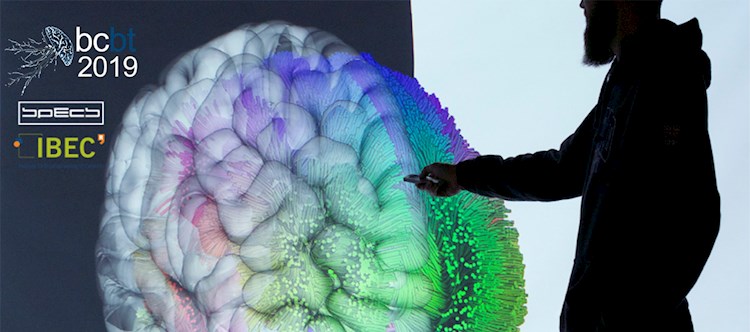
The annual international summer school Barcelona Cognition Brain and Technology promotes a shared systems-level understanding of the functional architecture of the brain and its possible emulation in artificial systems. This school, organized by the SPECS-lab@IBEC since 2008, addresses students and scientists involved in research at the interface between brains and technology such as in the ambit of “Bio-ICT convergence” “Brain Inspired ICT” and “cognitive systems and robotics.”
Students will attend lectures from prominent scientists in the field of brain research, cognitive science and neuroscience, as well as AI and related fields.
On Wednesday 4th September 2019, Professor Bryan A. Strange, Head of Neuroimaging Department, CIEN Foundation; Laboratory for Clinical Neuroscience, CTB-UPM will give the lecture Novel techniques for manipulating memory in humans. Memory for events and episodes can be impaired in a wide range of neurological and psychiatric diseases. With the incidence of dementia rising, there is an increasing need for techniques that can improve episodic memory in humans. By contrast, emotionally traumatic memories are central to the development of certain psychiatric conditions, such as post-traumatic stress disorder, necessitating treatments that weaken pre-existing, maladaptive or unwanted, memories. I will explain how an understanding of the neurobiological mechanisms underlying episodic memory has led us to develop methods to improve, or deliberately impair, memory in humans via the application of behavioural or pharmacological interventions, deep-brain stimulation, or electro- convulsive therapy. With a view towards identifying people who will require help to maintain memory function, I will lastly describe data from the Vallecas Project, a large (n=1213), longitudinal cohort of elderly individuals presenting the neuropsychological and MRI biomarkers that predict the development of future mild-cognitive impairment in cognitively healthy people.